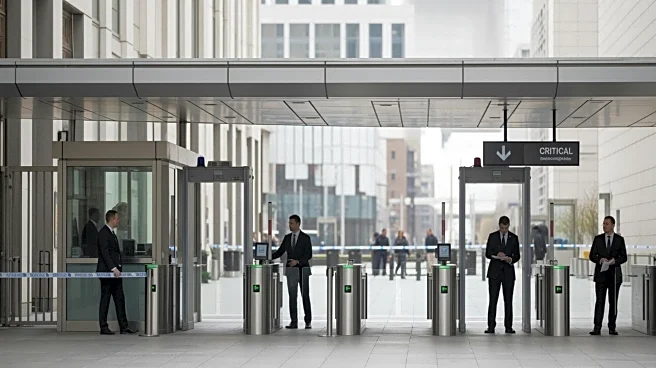What's Happening?
The Louvre Museum in Paris has reopened after a daring heist where thieves stole jewelry valued at $102 million. The robbery occurred in broad daylight, with thieves using power tools to break into the
museum and escape with the jewels. The museum's director, Laurence des Cars, acknowledged structural security issues and expressed a desire to close parts of the museum for refurbishment. French President Emmanuel Macron has urged for expedited security measures at the Louvre. Investigations are ongoing, with a focus on whether the museum's alarm system was deactivated during the heist.
Why It's Important?
The theft of the crown jewels from the Louvre has significant implications for cultural institutions worldwide, highlighting vulnerabilities in security systems. The incident has prompted a reevaluation of security protocols at museums, potentially leading to increased investments in security technology. The heist also raises concerns about the preservation of cultural heritage, as stolen artifacts may be lost or damaged. The event underscores the need for balancing accessibility with security in public spaces, impacting how museums operate globally.
What's Next?
French authorities are intensifying efforts to capture the thieves, with Interior Minister Laurent Nunez expressing confidence in their eventual apprehension. The investigation may lead to revelations about criminal organizations involved in art theft. The Louvre is expected to implement stricter security measures, possibly influencing other museums to follow suit. The cultural sector may see increased collaboration with law enforcement to prevent future incidents. The outcome of the investigation could affect public trust in museum security and influence future policy decisions.










